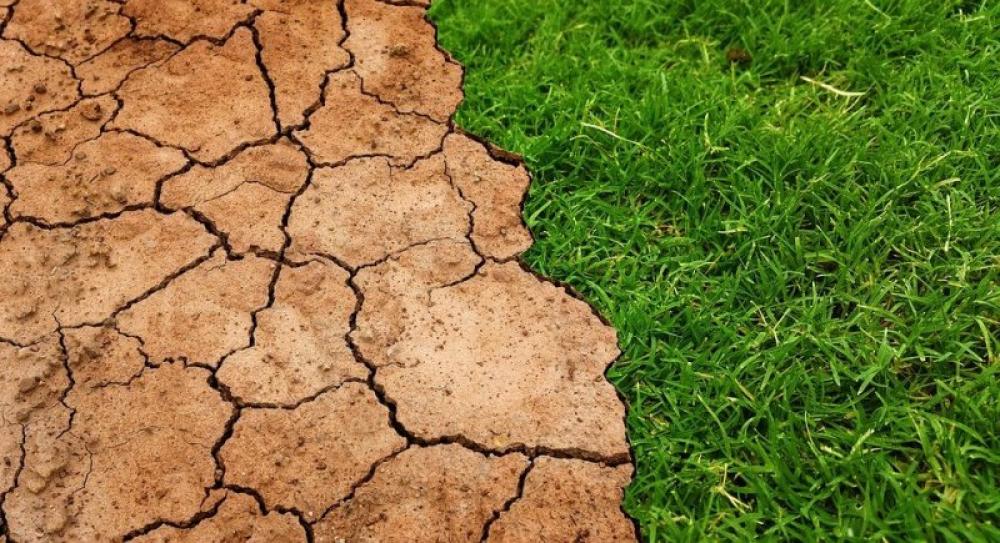Just Earth News | @justearthnews | 31 Oct 2021

Pixabay
Record atmospheric greenhouse gas concentrations and associated accumulated heat have propelled the planet into uncharted territory, with far-reaching repercussions for current and future generations, according to the World Meteorological Organization (WMO).
The past seven years are on track to be the seven warmest on record, according to the provisional WMO State of the Global Climate 2021 report, based on data for the first nine months of 2021.
A temporary cooling “La Niña” event early in the year means that 2021 is expected to be “only” the fifth to seventh warmest year on record. But this does not negate or reverse the long-term trend of rising temperatures.
Global sea level rise accelerated since 2013 to a new high n 2021, with continued ocean warming and ocean acidification.
The report combines input from multiple United Nations agencies, national meteorological and hydrological services and scientific experts. It highlights impacts on food security and population displacement, harming crucial ecosystems and undermining progress towards the Sustainable Development Goals.
“The provisional WMO State of the Global Climate 2021 report draws from the latest scientific evidence to show how our planet is changing before our eyes. From the ocean depths to mountain tops, from melting glaciers to relentless extreme weather events, ecosystems and communities around the globe are being devastated. COP26 must be a turning point for people and planet," said United Nations Secretary-General António Guterres.
“Scientists are clear on the facts. Now leaders need to be just as clear in their actions. The door is open; the solutions are there. COP26 must be a turning point. We must act now – with ambition and solidarity – to safeguard our future and save humanity,” said Mr Guterres in a video statement.
“It rained – rather than snowed - for the first time on record at the peak of the Greenland ice sheet. Canadian glaciers suffered rapid melting. A heatwave in Canada and adjacent parts of the USA pushed temperatures to nearly 50°C in a village in British Columbia. Death Valley, California reached 54.4 °C during one of multiple heatwaves in the southwestern USA, whilst many parts of the Mediterranean experienced record temperatures. The exceptional heat was often accompanied by devastating fires,” said WMO Secretary-General Prof. Petteri Taalas.
“Months’ worth of rainfall fell in the space of hours in China and parts of Europe saw severe flooding, leading to dozens of casualties and billions in economic losses. A second successive year of drought in sub-tropical South America reduced the flow of mighty river basins and hit agriculture, transport and energy production,” said Prof. Taalas.
“Extreme events are the new norm,” said Prof. Taalas. “There is mounting scientific evidence that some of these bear the footprint of human-induced climate change.”
“At the current rate of increase in greenhouse gas concentrations, we will see a temperature increase by the end of this century far in excess of the Paris Agreement targets of 1.5 to 2 degrees Celsius above pre-industrial levels,” said Prof. Taalas. “COP26 is a make-or-break opportunity to put us back on track.”
The provisional State of the Climate 2021 report is released at the start of the UN Climate Change negotiations, COP26, in Glasgow. It provides a snapshot of climate indicators such as greenhouse gas concentrations, temperatures, extreme weather, sea level, ocean warming and ocean acidification, glacier retreat and ice melt, as well as socio-economic impacts.
It is one of the flagship scientific reports which will inform negotiations and which will be showcased at the Science pavilion hosted by WMO, the Intergovernmental Panel on Climate Change and the UK Met Office.
During COP26, WMO will launch the Water and Climate Coalition to coordinate water and climate action, and the Systematic Observations Financing Facility to improve weather and climate observations and forecasts which are vital to climate change adaptation.